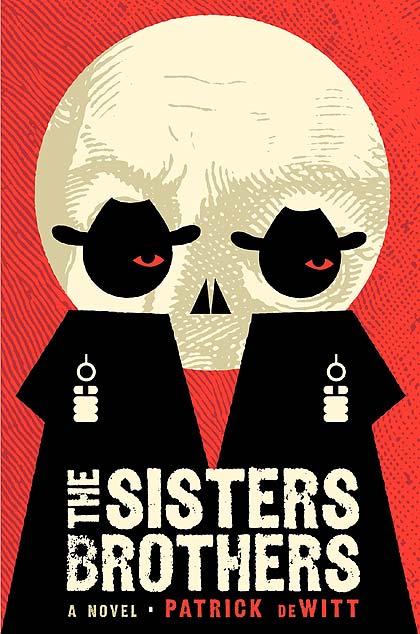
Thicker Than Water
An interview with Oregon author Patrick deWitt
by Rick Levin
 |
Oregon author Patrick deWitt has written one of the finest books of the year, The Sisters Brothers, a novel about a pair of murderers for hire that brilliantly, hilariously, touchingly skews the conventions of the classic Western. The following is an interview EW conducted with deWitt, who prefers to do such things via email.
What inspired you to write a Western historical novel (just to get things started with a really reductive question)? For me, a large part of the attraction of the novel was the ways you mess with the genre: picaresque elements; an almost absurdist comic sense, especially in the dialogue, that somehow doesn’t send it into Heller or Vonnegut territory; a deeply empathetic, compassionate, intimate revelation of hard-hearted characters; gruesome acts of violence that are yet almost the polar opposite of the violence portrayed by writers like Cormac McCarthy; and a Rabelaisian wit that doesn’t detract from the completely modern, new feel of the book.
There were a few reasons. I wanted to honor a literary tradition but I also wanted to, you know, throw up on it a little bit. Which is just another kind of literary tradition, I guess. I found it freeing, though, starting out with the pre-existing scenery. You’d think it would be stifling, but I felt like a kid set loose in a museum with a crayon.
The blending of pathos, bathos and pure slapstick is brilliant. How conscious were you of this balancing act, or was it more a product of a natural style that flowed from the way you wove the narrative. (Okay, I sound like a sniff … I’m not, just that the novel is so impressive I don’t know how to ask questions otherwise; forbear, please).
It was more something that became precarious, rather than something I knew would be precarious from the start. But at a certain point it occurred to me there were a million ways to screw the whole thing up. So, your tightrope analogy is a good one. And how does one walk across a tightrope? He walks slowly, and with great care, because he’s afraid, and he should be afraid.
So, you reside in Oregon; readers (and my editor) are going to want to know if we can claim you, geographically, as one of our own in Eugene. Are you another great Portland writer? Perhaps huddled a little further south?
I’ve only been in Oregon for three years, though I’ve spent many more in the general area/climate zone — Washington and British Columbia. But claim away, please. I won’t tell anyone I’m an outsider if you don’t.
Inspirations, for the novel and in general? Favorite writers, books, etc.? (For some reason, I got strong hints of (Robert Altman’s movie) McCabe & Mrs. Miller and a kind of pared back satire that made me think of everything from Swift to Heller).
There were a lot of inspirations, and a good many of them were films. I love McCabe and the spaghetti Westerns and Peckinpah and Butch Cassidy. I’d re-read some of the books from my youth before starting The Sisters Brothers, like Steinbeck’s Monterey novels and Jack Black’s You Can’t Win. Combing over these was key because I was reminded of why I loved books in the first place, and the rekindling of that initial spark proved helpful in writing TSB.
I realize no novel is “easy” to write, but was The Sisters Brothers as easy to write as it is to read? And I mean easy in the sense of engaging and page turning while also being a serious work of literature.
It was never dull, that’s for sure — I never loathed sitting down to it each morning, and the characters never really left me throughout the time I was writing about them. But no, it wasn’t easy in any sense of the word. I had meltdowns and breakdowns and even a crisis of faith at one point. But these desperate moments fade with time, and now, when I hold the book in my hands, it’s like they never happened at all.